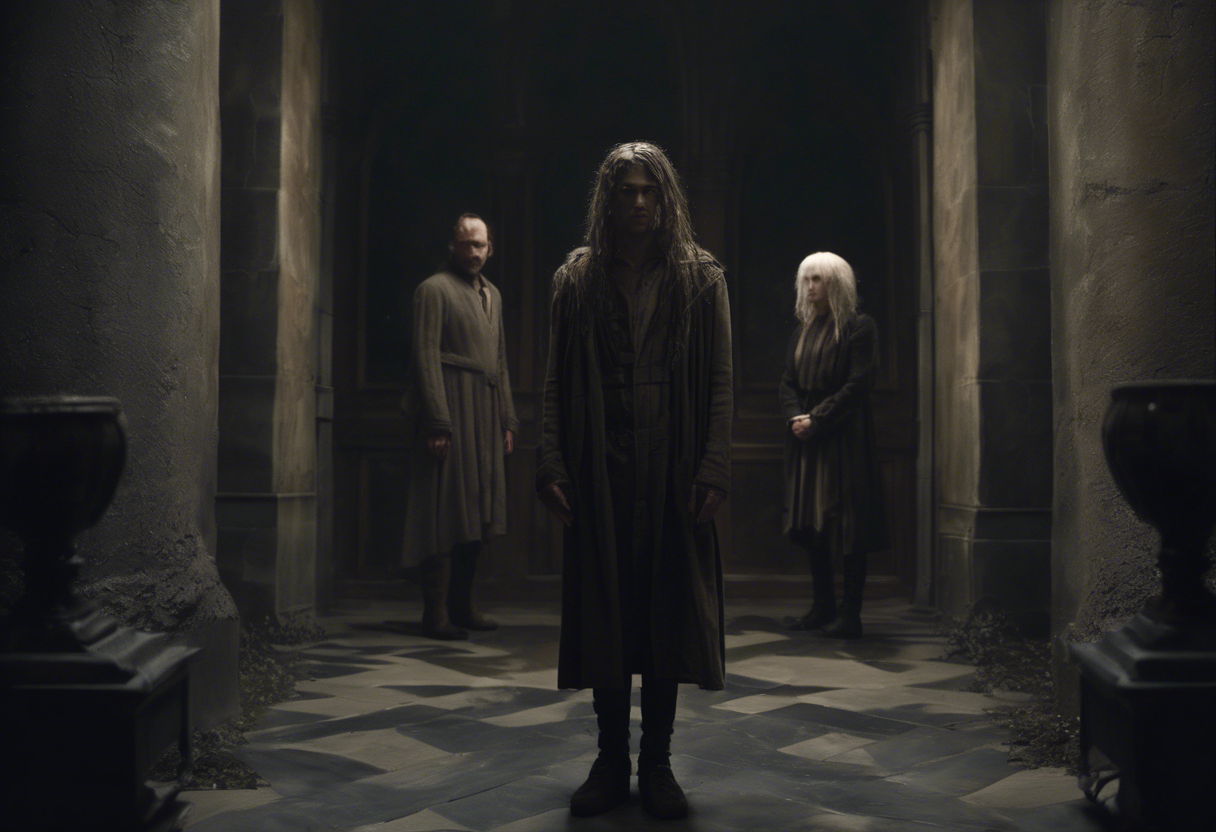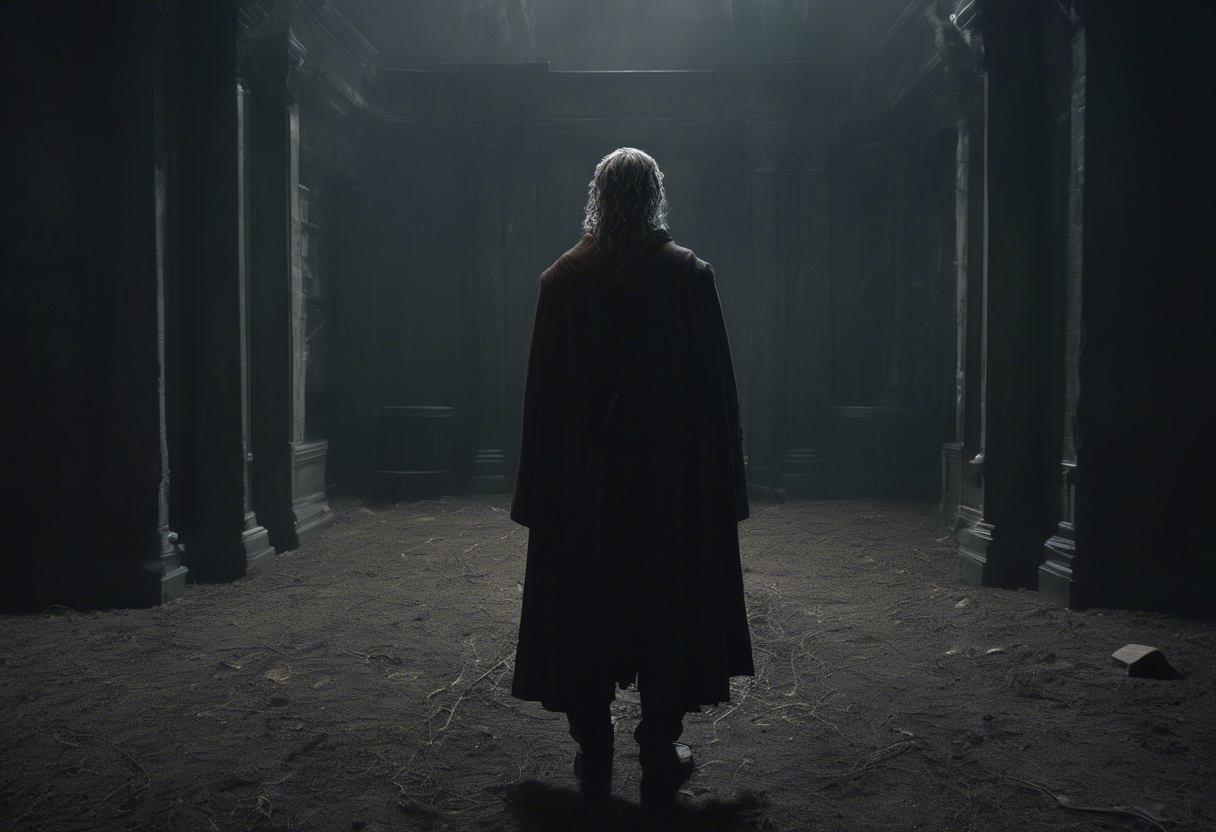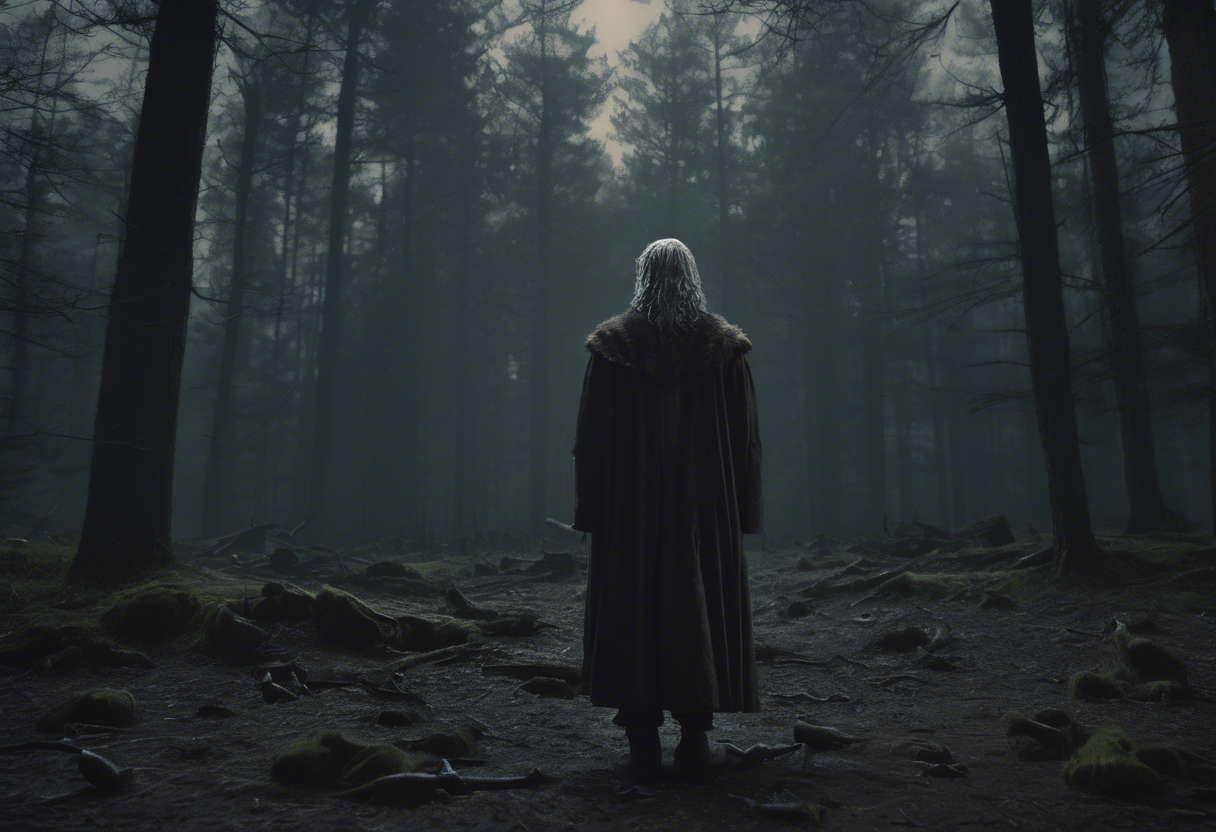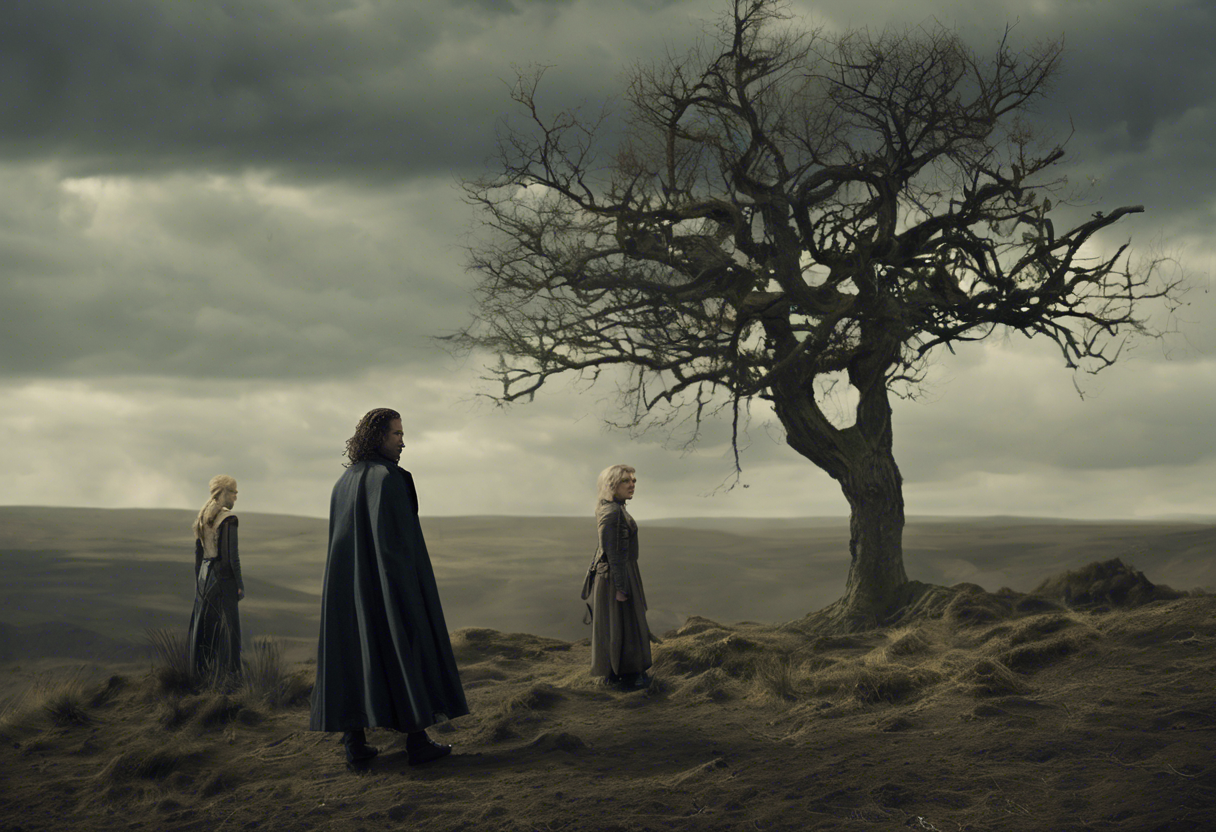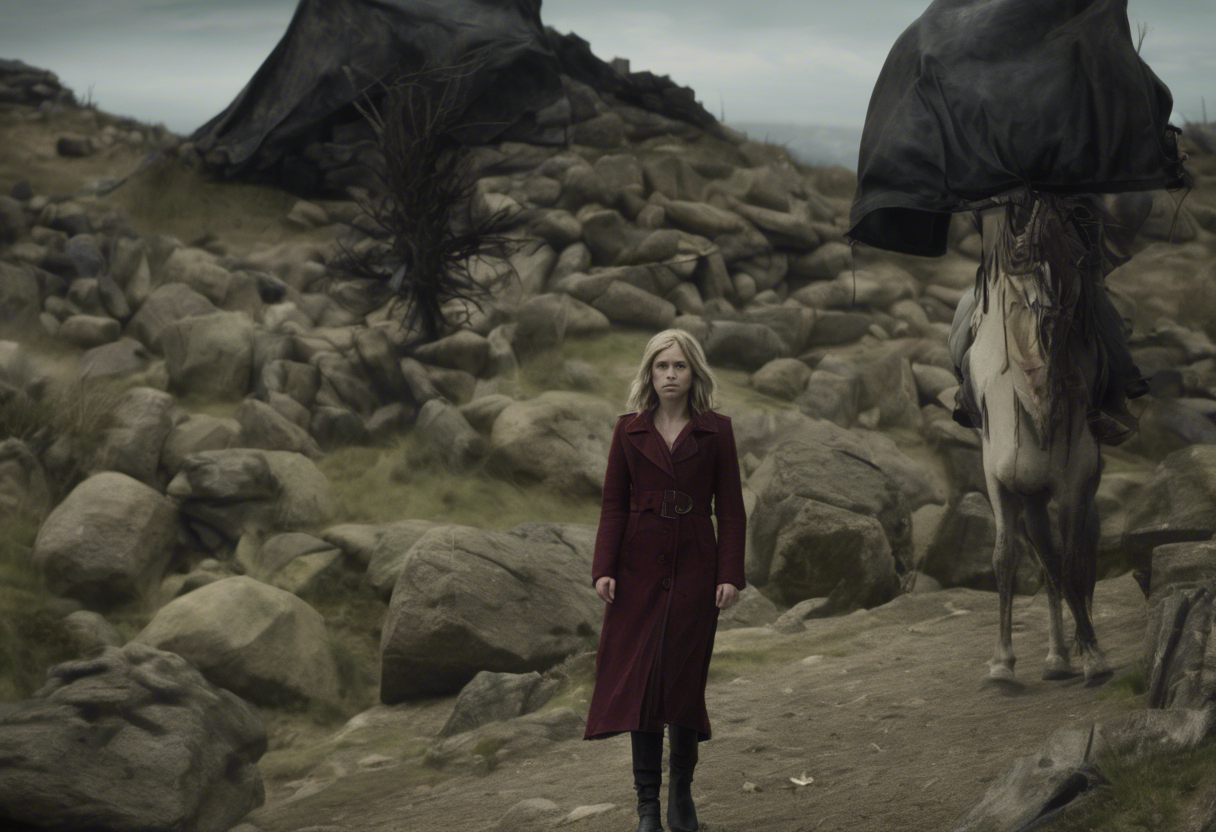Contents
Dark Season 1: Episode 6 – Sic Mundus Creatus Est
Introduction
"Dark," the German science fiction thriller series created by Baran bo Odar and Jantje Friese, has garnered significant attention for its complex narrative, deep character development, and intricate plot twists. Produced by Wiedemann & Berg Television, the series premiered on Netflix in 2017 and quickly became a global phenomenon. The sixth episode of the first season, "Sic Mundus Creatus Est," is a pivotal installment that delves deeper into the mysteries of the fictional town of Winden, Germany.
Directed by Baran bo Odar and written by Jantje Friese and Ronny Schalk, this episode continues to unravel the dark secrets and interconnected lives of the town’s residents. The title "Sic Mundus Creatus Est," which translates to "Thus the world was created," hints at the episode’s focus on the origins and the cyclical nature of time and events in Winden.
Plot Summary
The episode opens with a flashback to 1986, where Ulrich Nielsen and his friends, including Katharina Albers, are shown tying Regina Tiedemann to a tree near the cave, leaving her there for hours. This scene sets the tone for the exploration of past traumas and their impact on the present.
In the present day, the police investigation into the missing boys continues, but the body found is not identified as one of the missing children, adding to the mystery and tension[1][3].
Ulrich Nielsen, driven by his desperation to find his son Mikkel, delves deeper into his family’s past. He uncovers disturbing family secrets, particularly involving his father, Tronte Nielsen, and his mother, Jana Nielsen. These revelations shake Ulrich to his core and force him to confront the dark truths about his family’s history[2][5].
Meanwhile, Jonas Kahnwald is on a mission to uncover the truth about the cave and the mysterious events surrounding it. Armed with a Geiger counter provided by the Stranger, Jonas follows the readings which lead him to a narrow tunnel. As he crawls through the tunnel, he encounters a series of eerie and symbolic scenes, including the voice of Ariadne, who describes her descent into darkness and her impending death. This narrative is intertwined with Jonas’s physical journey, emphasizing the themes of descent into the unknown and the search for truth[3][5].
Jonas eventually reaches a small metal door with the inscription "Sic Mundus Creatus Est." He opens the door, and as he steps through it, the door closes behind him, symbolizing his entry into a new realm of understanding and mystery[3][5].
The episode also explores the relationships between other characters, such as Katharina and Hannah, as they confront their own pasts and the secrets that have been hidden for so long. The interconnectedness of the characters and their stories is a hallmark of "Dark," and this episode reinforces this complexity by showing how each character’s actions and decisions are intertwined[2][5].
As the episode progresses, the audience is taken through a maze of timelines and events that blur the lines between past, present, and future. The use of flashbacks, particularly to 1986, highlights the cyclical nature of time in Winden, where events repeat themselves in a seemingly endless loop.
The search for Mikkel and the other missing boys continues, but it is clear that the truth is far more complex and sinister than initially thought. The episode ends with Jonas on the other side of the metal door, symbolizing his transition into a new phase of his journey, one that will uncover even more secrets about Winden and its inhabitants.
Themes and Symbolism
One of the central themes of "Sic Mundus Creatus Est" is the exploration of the past and its impact on the present. The episode delves into the traumas and secrets that have been buried for decades, highlighting how these events shape the lives of the characters. The use of flashbacks and the interconnected timelines emphasizes the idea that the past is not just a series of events but an active force that influences the present.
The theme of descent into the unknown is also prominent. Jonas’s journey through the tunnel and his eventual discovery of the metal door symbolize his willingness to confront the mysteries of Winden head-on. This descent is not just physical but also metaphorical, as Jonas delves deeper into the heart of the town’s secrets.
Symbolism plays a crucial role in this episode, particularly with the use of the red thread and the Geiger counter. The red thread, which Jonas follows, represents his quest for truth and his connection to the mysterious events. The Geiger counter, provided by the Stranger, symbolizes the tools and guidance Jonas needs to navigate the complex web of time and events in Winden.
The inscription "Sic Mundus Creatus Est" on the metal door is also symbolic, hinting at the creation of a world or a reality that is governed by its own rules and cycles. This inscription underscores the episode’s focus on the origins and the cyclical nature of time in Winden.
Cultural Impact
"Dark Season 1: Episode 6 – Sic Mundus Creatus Est" has had a significant impact on pop culture, particularly in the realm of science fiction and mystery series. The episode’s complex narrative and use of multiple timelines have influenced other creators in the genre. The show’s unique storytelling approach has been referenced and praised in various media outlets and fan communities.
The episode’s themes of time travel, interconnected lives, and the cyclical nature of events have resonated with audiences, making "Dark" a staple in discussions about complex storytelling and narrative structure.
Critical Reception
Critics and viewers alike have praised "Sic Mundus Creatus Est" for its intricate plot, deep character development, and the way it expands the show’s mythology. The episode has been lauded for its ability to balance multiple storylines and timelines, keeping viewers engaged and curious.
Reviewers have noted the episode’s atmospheric tension and the way it builds on the mysteries introduced in earlier episodes. The performances of the cast, particularly Louis Hofmann as Jonas Kahnwald and Oliver Masucci as Ulrich Nielsen, have been praised for their depth and emotional resonance.
However, some critics have noted that the episode’s complexity can be overwhelming, requiring close attention from viewers to follow the various plot threads. Despite this, the overall reception has been positive, with many considering this episode a highlight of the first season.
Legacy
"Sic Mundus Creatus Est" has left a lasting impact on the world of television and storytelling. The episode’s innovative use of multiple timelines and its exploration of complex themes have influenced a generation of writers and creators.
The show’s success has also paved the way for more complex and ambitious storytelling in television, encouraging creators to push the boundaries of narrative structure and character development.
In conclusion, "Sic Mundus Creatus Est" is a pivotal episode in the "Dark" series, offering a deep dive into the mysteries of Winden and the interconnected lives of its residents. Its themes of descent into the unknown, the impact of the past on the present, and the cyclical nature of time continue to resonate with audiences, making it a standout in the world of science fiction and mystery.
References
- https://www.1ofmystories.com/2020/06/netflix-dark-season-1-episode-6-recap.html
- https://dark-netflix.fandom.com/wiki/Sic_Mundus_Creatus_Est
- https://metawitches.com/2019/06/09/dark-season-1-episode-6-sic-mundus-creatus-est-recap/
- https://dark-netflix.fandom.com/wiki/Sic_Mundus
- https://fathersonholygore.com/2017/12/04/dark-season-1-episode-6-sic-mundus-creatus-est/

